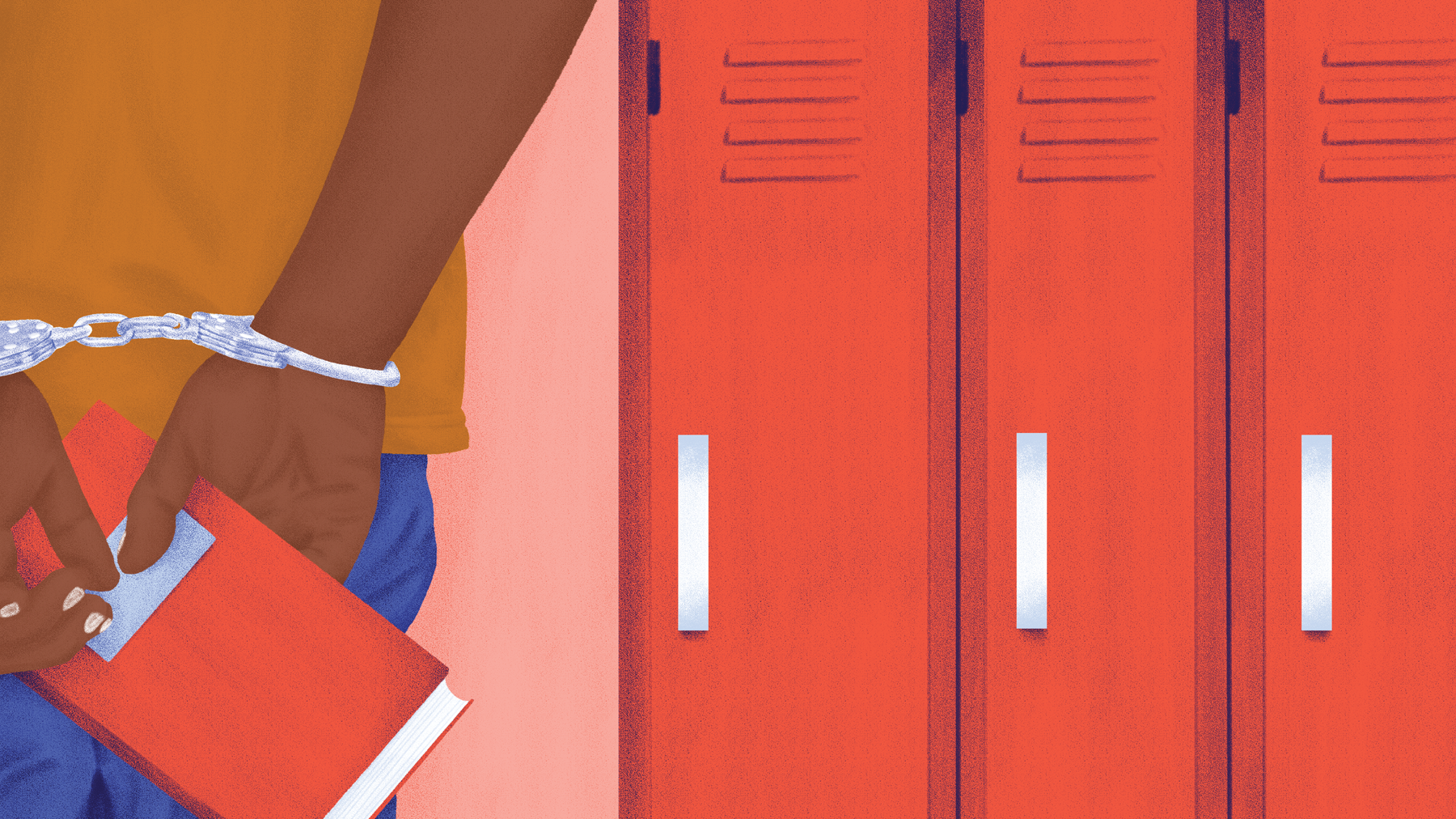Latrice Johnson’s teenage son faced criminal charges after he got into a fight at school. Although the charge was eventually dropped, the situation increased stress on his family.
Johnson, of Montgomery, Alabama, is among a growing number of parents, students and activists around the country who are mobilizing to improve school safety without police presence, while advocating for students’ dignity at the same time.
In the past, normal adolescent behavior – including schoolyard skirmishes, practical jokes and angry outbursts – could land a student in the principal’s office. But today, such incidents can place students behind bars.
Proponents of the movement to remove police from schools cite research indicating that school resource officers (SROs) don’t make schools safer, but they do increase the likelihood that students – particularly Black and Brown children – will enter the school-to-prison pipeline.
More emphasis should be placed on counseling and mental health services than on placing students in handcuffs, these activists say.
“Kids will be kids, but take the time out and don’t just try to send them to juvenile or suspend them. There are alternatives today,” Johnson told Coshandra Dillard, a senior writer for the Southern Poverty Law Center’s Learning for Justice project, which published its inaugural edition of Learning for Justice magazine today. The magazine formerly published under the name Teaching Tolerance.
In her magazine story, titled “Envisioning School Safety Without Police,” Dillard writes: “Many students, parents and community members say school police have been ineffective. Studies have shown that SROs don’t reduce crime but cause harm instead – including increased arrests, expulsions, physical restraint and the kind of family stress that Johnson describes.”
The activists’ voices are being heard.
As Dillard’s story explains, many large school districts across the country – including Minneapolis; Denver; Milwaukee and Madison, Wisconsin; Portland, Oregon; San Francisco and Oakland, California; and Rochester, New York – have cut ties with police.
Smaller communities have also been working to remove police from schools. Such efforts are taking place in the South as well, including Gwinnett County, Georgia.
Marlyn Tillman, a parent and activist in Gwinnett County, told Dillard that a teacher engaged an SRO in 2003 to enforce the dress code against her son, who was suspended. After she sued the school district and settled the case in 2006, Tillman and other parents created the Gwinnett Parent Coalition to Dismantle the School to Prison Pipeline (Gwinnett SToPP) in 2007.
As she worked with school administrators to change the school district’s policies, Tillman recognized that the language in these policies resembled criminal codes.
“You’re teaching them how to go to jail,” Tillman said, recalling a conversation she had with an administrator. “You’re desensitizing them to being criminally involved. This is all part of the whole prison industrial complex.”
To read the full story and all of the Learning for Justice magazine’s inaugural edition, click here.
Editor’s note: The SPLC’s Teaching Tolerance program changed its name to Learning for Justice in February to reflect its evolving work in the struggle for radical change in education and in communities. The rollout of the new name has been taking place over the last several months, as the program makes changes on its website and social media accounts. The name change is also taking place gradually in the program’s publications, lessons and other resources. The Spring 2021 issue of Teaching Tolerance magazine was the last one under that name. Beginning with the current Fall 2021 issue, the magazine is now called Learning for Justice.
Illustration by Cha Pornea



